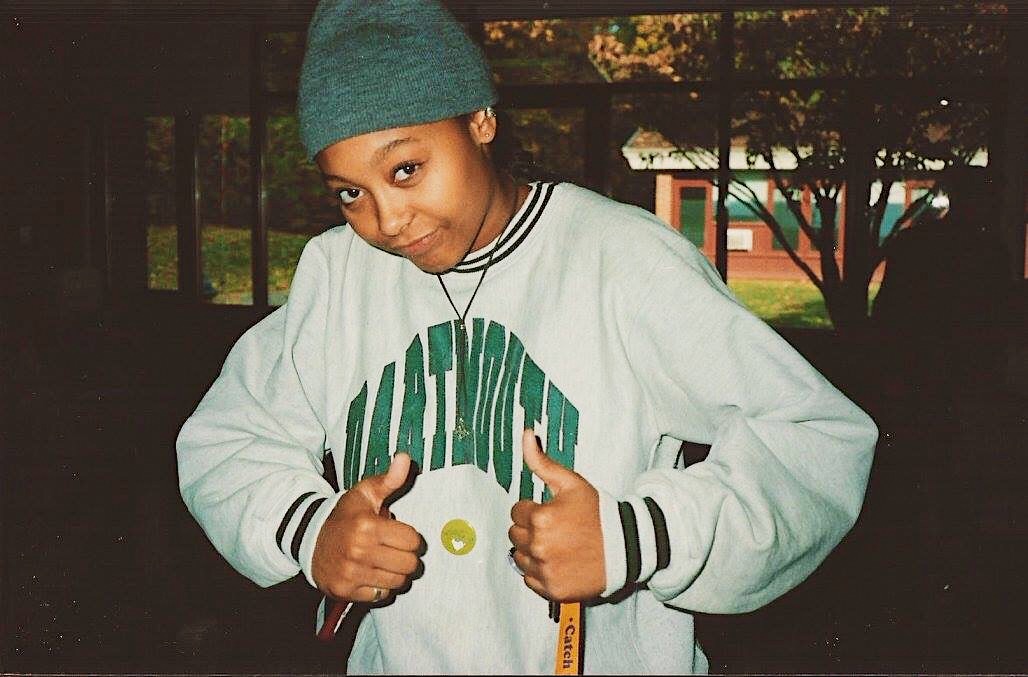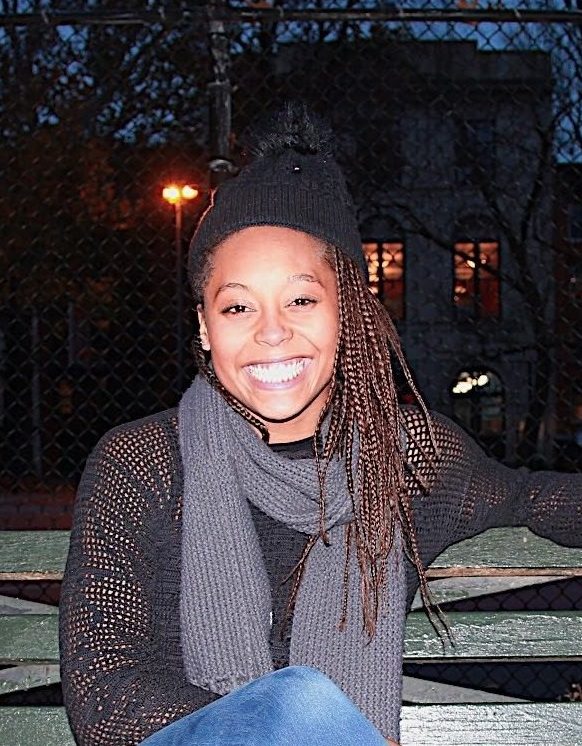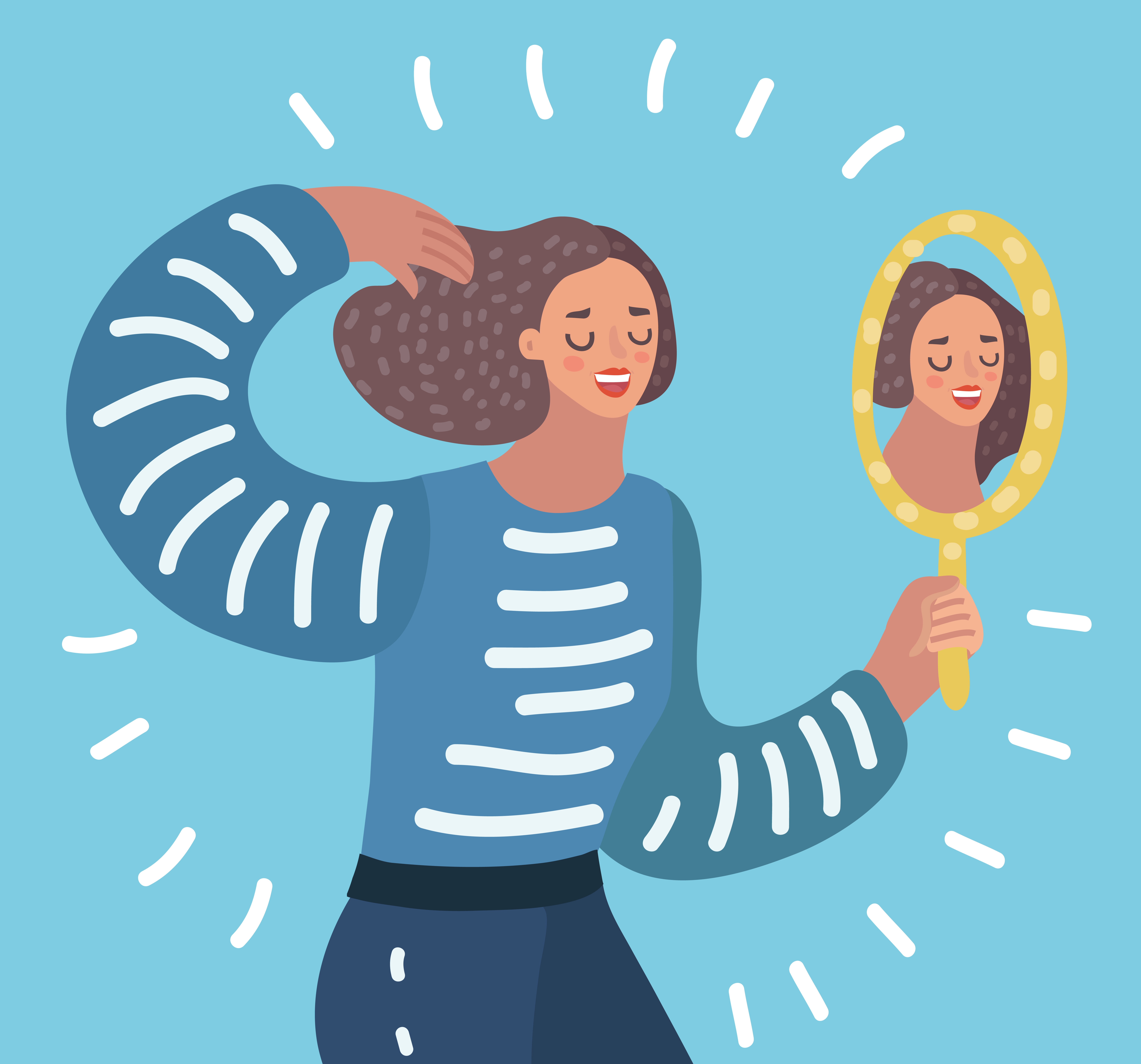Welcome to our special section, Thrive on Campus, devoted to covering the urgent issue of mental health among college and university students from all angles. If you are a college student, we invite you to apply to be an Editor-at-Large, or to simply contribute (please tag your pieces ThriveOnCampus). We welcome faculty, clinicians, and graduates to contribute as well. Read more here.
Who Am I
Who was I before I identified as a “queer black woman”?
I remember being five years old jumping at the chance to play outside. And yet, I was tugged back indoors because society demanded that my natural hair of kinks be pressed, tied up, and tamed. I remember resting in my brother’s loosely fitted gym shorts as my grandmother asked my father how he could let me run around looking like a “little boy.”
I never cared for the primed look until society urged me to choose more wisely. I was clasped within the bounds of a neatly sculpted shirt that was “perfectly” designed to fit my “feminine figure” and the lacy stitched underwear my mother warned that I would find “uncomfortable.”
I remember having a tangible sense of joy that stemmed from a place of amazement and curiosity.
Where did those feelings of wonderment go?

“The Mind, Explained” @Netflix
After watching Netflix’s latest documentary series, “The Mind, Explained” I realized that I feel most like myself when I forget who I am.
Did you know that scientists can implement memories full of leading questions that can boost the confidence of a false memory? In other words, our minds are unreliable because we can’t remember every detail of every experience. So, humans innately use implicit biases to fill in the gaps of our own existence.
Our episodic memory creates alternate versions of our unconscious and conscious thoughts in order to complete a compilation of “who we are” and “where we came from.” In short, we create our own “sense of self” through the use of our shaky, inconsistent, yet entertainingly sufficient memories.
As a result, what we “remember” and what we “imagine” go hand in hand when attempting to construct the ultimate combo-meal of who we think we are, who we believe we use to be, and the futuristic self that we hope to attain.
According to “The Mind, Explained” when humans daydream, this figment of the mind becomes a convoluted combination of our past and aspiring futures. So, we subconsciously form “false memories” based on the storylines we choose to accept as true.
We forget, so we create.
We turn our “credible” past encounters into “possible” futures that may or may not confirm the person that we would like to be. This is dependent on our individual habitual cognitive thought patterns. These are the routine words we repeat to ourselves in order to uplift ourselves or self deprecate. I have found each to be equally impactful and triggering.
For this reason, when life feels dark and lonely, the words we choose to tell ourselves will impact the past we “remember” and the future we hope to make. For example, when one says “I am grateful for the love I have” versus “Nobody will ever love me.” Choosing to repeatedly say either of these few words is said to be completely life altering.
This may seem obvious. Though, why do we habitually fail to choose the affirming option of positivity?
Expand Your Ego-less Self
Psychoanalysts term the “self” as codes for the “Ego,” the “I,” the “Me.” The part of you that makes you, you. Or the part of you that you claim to be true.
For instance, you may take pride in saying, “I am Captain of the Football team,” “I am a Mother,” “I am President of DphI,” “I am a writer,” “I am an activist,” “I am kind.” Or “I am black,” “I am white,” “I am straight.” These are the labels for ourselves that we have claimed or accepted once they were assigned to us. Or as we labeled them ourselves.
Whoever is choosing to embrace or place these characterization tabs on another person is speaking from a place of “ego.”
It is comforting to give a concrete example of who and what we are. It is pleasing because it validates the leaps and hurdles you took to get here. And, it is satisfying to the person who asks you because they can then place you where they see fit in their mind. The point of this is not to determine whether what they label you as is “good” or “bad,” “better,” or “worse.”
It is that they are systematically taught to label you at all.
It is not problematic to latch onto the categories that award many of the privileges we feel as though we’ve earned. However, what would happen if we were to let all of this go?
What happens in those seemingly seldom moments when we’re so engrossed in playing the violin, experiencing “Runner’s High,” standing at the top of a mountain, looking at the night sky, or sitting across from a lover? What is that tingly sensation that makes our heads hot and our hands move slowly, when time stops and you forgot about any previous worries?
According to positive psychologist Mihály Csíkszentmihályi,
“What you are experiencing in that moment is known as flow, a state of complete immersion in an activity. The ego falls away. Time flies. Every action, movement, and thought follows inevitably from the previous one, like playing jazz. Your whole being is involved, and you’re using your skills to the utmost.”
Kendra Cherry, Very Well Mind
The magic. It sneaks up, around, and slowly we forget who we think we are. How can we cultivate more moments like this one, perhaps even alone?
A loss of self is to be gifted with a new one.
Considering there was a self to begin with. Who were you before the world demanded you to choose? In this ego-less sentiment of being, who is it that you have always been in spite of your memory?
A brave person thinks of themselves as more than a binary figment of their mind.
This sense of enchantment, it does not look, feel or taste the same for everyone. Though, everyone can access the feeling.
You just have to forget in order to remember who you really are.

Ego-less
And when you call me “pretty,”
I don’t know if that’s a fetishization of who you think I am
And
I hit that marker perfectly.
Or
Is it an accumulation of that washed look
That
I never found quite fitting?
Made of the “irrational” because you left out this category
Fully blessed to be more than what you thought of me
Credited and checked because we come from royalty
Who was I before they told you what to think of me?
You thought what of me before they used us for efficiency?
But, then again-
We had one too many “deficiencies.”
Why would you think to think of me that simply?
Tastes of the grey makes me feel that glitch
A bit more clearly.
Feminine because I want to be
Black is a shade and I love how it looks on me
Girl is a term that I associate with brilliancy
If you saw choice in a way you never imagined it to be
Then
You
Would
Find
Me.
Subscribe here for all the latest news on how you can keep Thriving.
More on Mental Health on Campus:
What Campus Mental Health Centers Are Doing to Keep Up With Student Need
If You’re a Student Who’s Struggling With Mental Health, These 7 Tips Will Help
The Hidden Stress of RAs in the Student Mental Health Crisis


